A ban on some of the most common single-use plastics will come into effect in Scotland from next month, with significant fines for any businesses that don’t comply.
The sale and use of plastic straws, cutlery, polystyrene cups and take away boxes will be banned as part of measures to reduce waste.
Scotland is the first UK nation to pursue the ban but, as The Press & Journal found out, not all businesses seem to be aware of the upcoming changes.
Will there be a penalty if businesses don’t comply with the single-use plastic ban?
The new legislation will come into force on June 1 and applies to both online and in-store sales, whether they are free or charged for.
In addition to polystyrene containers, straws and plastic cutlery, the ban also includes plastic drinks stirrers, plastic plates and balloon sticks.
According to the Scottish Government, this follows a six-month grace period, meaning that after June 1 businesses using any of these items will be committing an offence.
Failure to comply with the regulations carries a maximum fine of £5,000.
An exemption will be in place for people who need plastic straws for medical reasons.
From 1 June 2022 certain single-use plastics (subject to the UK Internal Market Act 2020) will be banned in Scotland. We hope this this marks the start of people switching to reusables rather than substituting plastic for another single-use material. ⬇️https://t.co/6Js0fvPILv pic.twitter.com/GTL7HMn3Yj
— Zero Waste Scotland (@ZeroWasteScot) May 11, 2022
A spokesperson for the Scottish Government explained that Zero Waste Scotland has been running a campaign with advice to help businesses prepare for the change.
This has mostly involved spreading the word about the upcoming ban and encouraging businesses to have used their stocks up by the deadline.
Do businesses still use these items?
Although there are a few cardboard alternatives around now, all sorts of businesses still use plastic cutlery and polystyrene boxes in particular.
To get a feel for how widespread their use is, The Press & Journal visited six different takeaway shops in Aberdeen this week and found that all six of them are still using plastic cutlery and polystyrene containers.
Only one of the six shops knew about the incoming ban on June 1.
In all of the shops, there were stacks and stacks of polystyrene boxes piled up. One shop owner told us he had at least six months’ stock in storage.
Owner of Marco’s Fish Bar on Justice Mill Lane, Marco Hamedi, said he had been to the wholesaler that morning to purchase more polystyrene boxes and plastic forks.
Though he had no problems getting the plastic boxes, the cutlery was another story.
“I couldn’t find plastic forks anywhere and so had to buy wooden forks which were more expensive,” he said.
“I asked the wholesaler why they didn’t have plastic forks and they didn’t know.
“I had no idea this ban was coming in June, we have not been told anything – no letter, no email, no TV advert, nothing.”
Catering suppliers like Brakes and Nisbets are still selling a range of the soon-to-be-banned items, like plastic cutlery which is on sale for half price.
Why is this ban needed?
The durability of plastic means items used for a few minutes can last for centuries in landfill or as litter in the countryside or ocean.
In addition to concerns for wildlife, constantly creating new plastic uses more raw materials, more energy and produces more CO2 emissions which contribute to climate change.
A spokesperson from Zero Waste Scotland said that introducing a ban on single-use plastic items is an important step in moving away from the throwaway culture society has developed.
“Plastic is a material that lasts hundreds of years, so it should be used to make items that we want to keep using again and again, and not for something to stir your tea with and then discard.
“We would like to see businesses switching to reusable options wherever possible, and avoid simply switching to single-use items made from other materials, as these are similarly wasteful and bad for the planet.
It is estimated the average person uses 18 throwaway plastic plates and 37 single-use knives, forks and spoons each year.
In Scotland alone, 66 million polystyrene food containers are used and thrown away a year
However there is proof that taking decisive action can have an impact.
A charge for single-use carrier bags was introduced back in 2014 to help combat plastic waste and within a year, the number of bags sold had gone down by 80%.
How will the single-use plastic ban be monitored?
Scotland isn’t the first place to implement a ban like this.
The EU banned single-use plastics last July across all 27 member states, so there is no doubt the Scottish Government will be watching with interest how things have been working one year on.
For now in Scotland however, enforcement activities are the responsibility of local authorities.
If members of the public come across a firm manufacturing or using any of the banned products in the course of business after 1 June, they are recommended to contact their local authority.
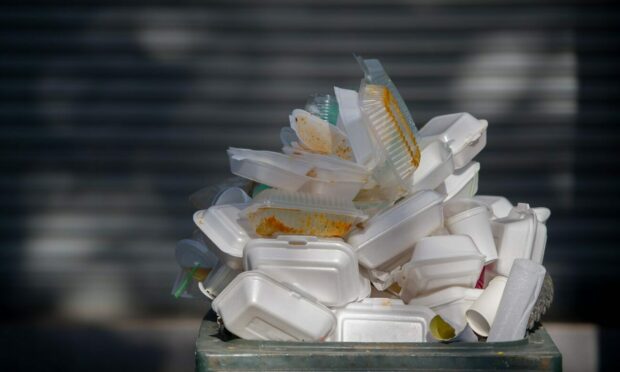
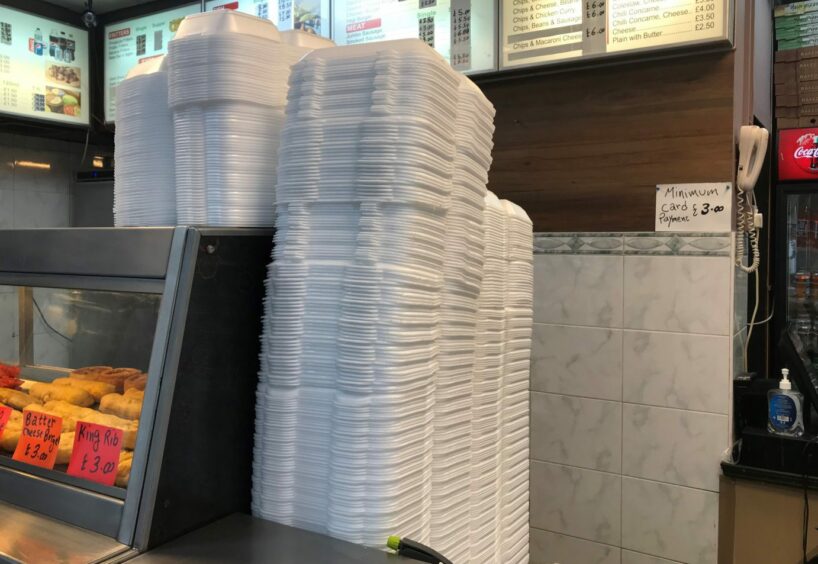
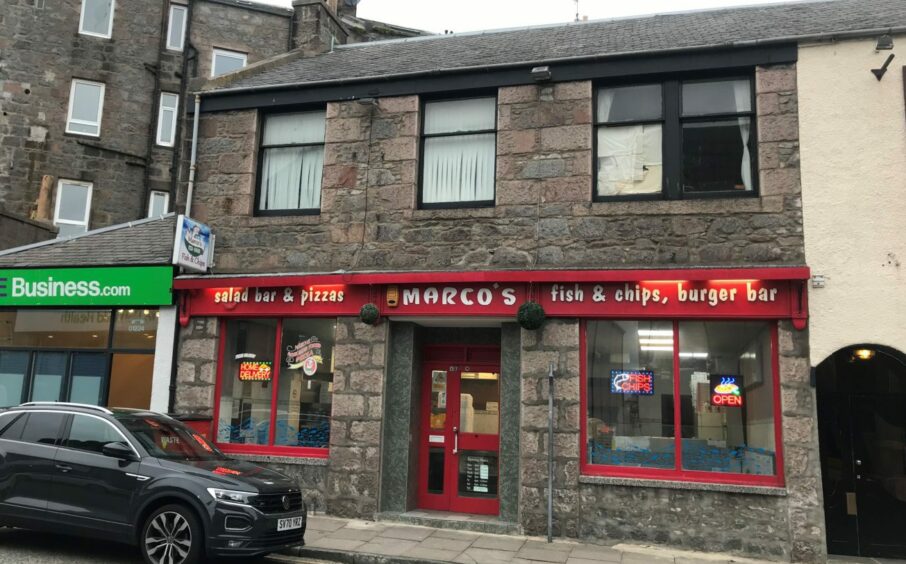
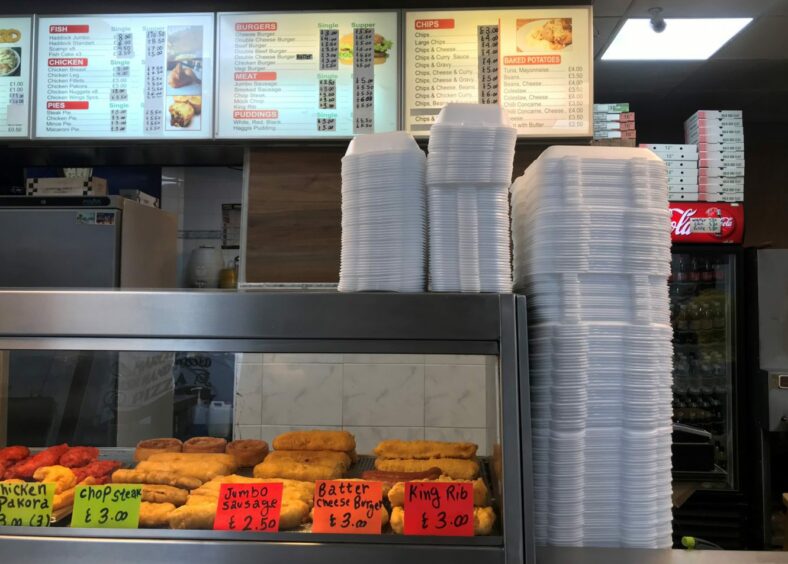
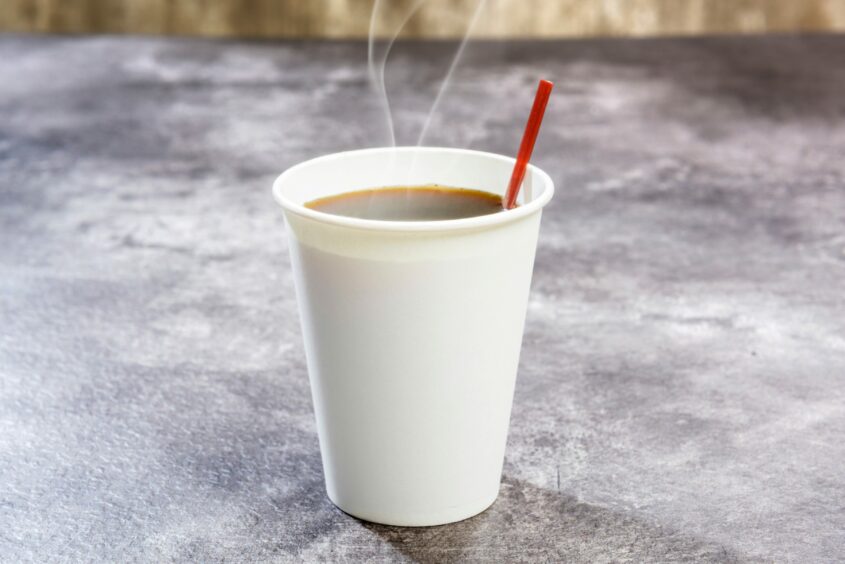




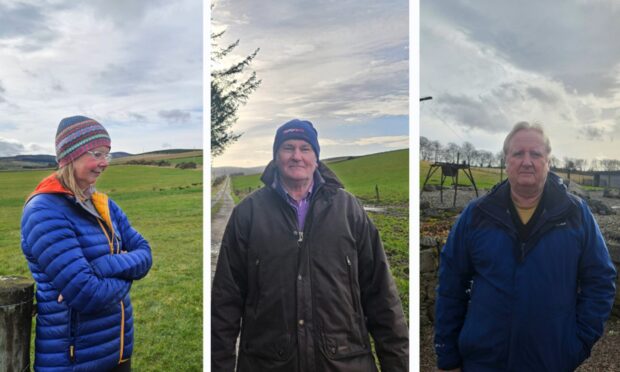
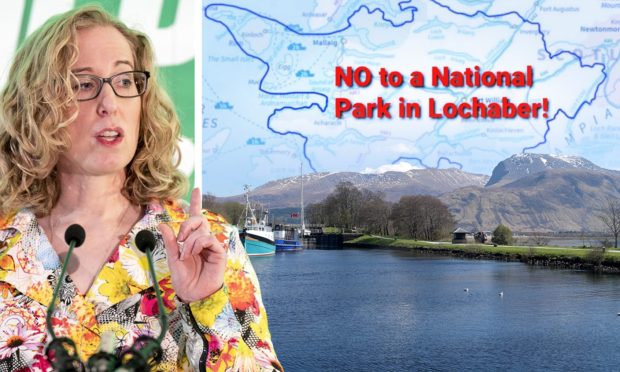
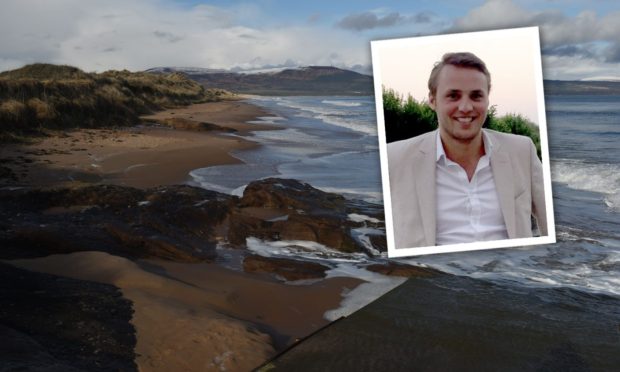
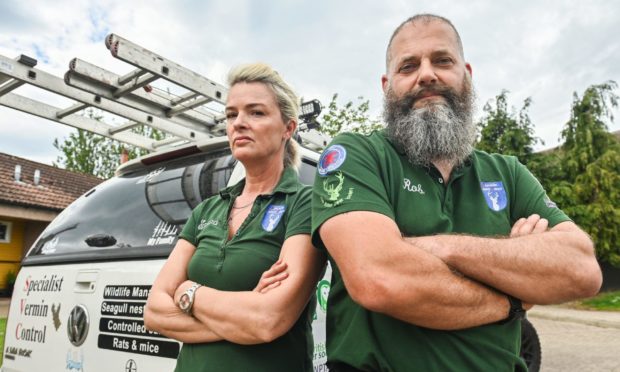
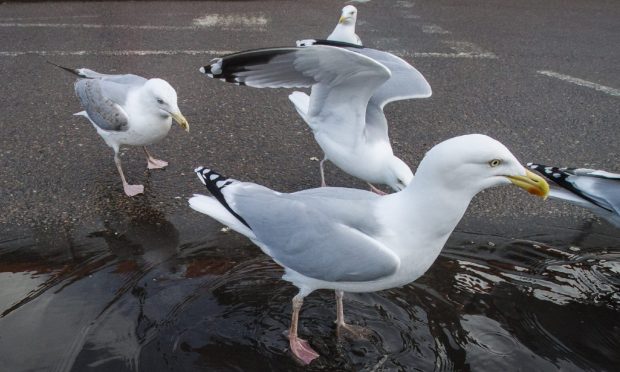

Conversation